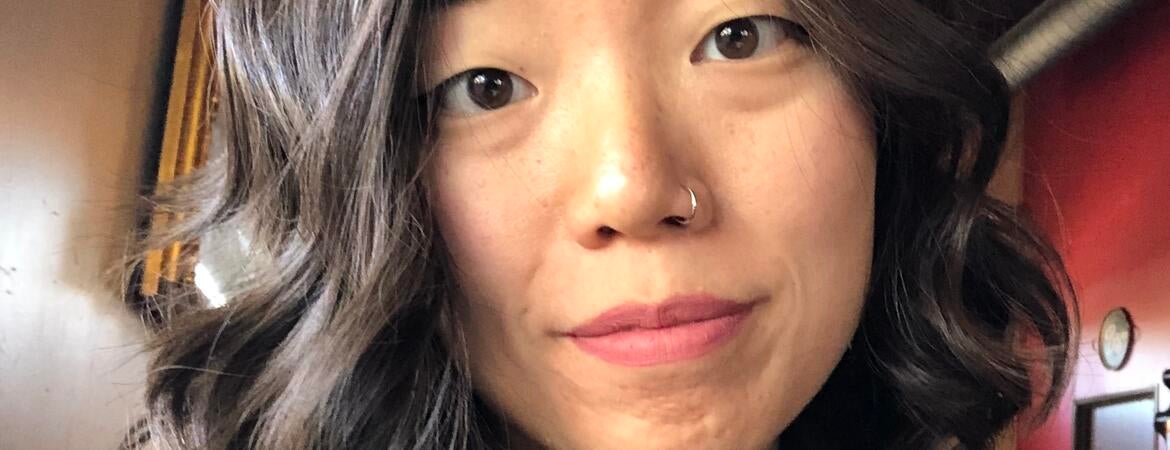Supporting Graduate Students' Academic and Professional Success

In the latest edition of our annual Summer PhD Spotlight series, we are chatting with Dr. Beth Kopacz, who has just completed her PhD in Ethnic Studies.
What did you get your degree in, and what are you doing now?
I have a PhD in Ethnic Studies, with a focus on Asian American studies, critical adoption studies, and feminist science and technology studies. In particular, I examine how transnational and transracial Korean adoptees navigate kinship, identity, narrative, and loss. I just started a new position as a Chancellor’s Postdoctoral Fellow at UC Irvine.
What are the top 2-3 things you did while at UCR that helped you finish your degree (and get a position in your field, if you have)? What was most helpful to you as a student here?
Before going ABD: In the first few years of my program, it was most helpful to put in the work and build a strong, varied community both within and outside of academia. This includes other grad students, postdocs, faculty, and staff—both at UCR and at other campuses. This may be obvious, but my network has been crucial to sustaining me in the long term. It not only provides professional support (e.g. reading drafts, sharing conference and job calls, intellectual collaboration, and writing groups), but also vital emotional support in navigating academic institutions and the inevitable rejections, missteps, and barriers that I encountered over the years. I also think it was helpful to access any/all campus resources available, including the food pantry, alternative transportation incentive, Counseling & Psychological Services, the Career Center, professionalization symposia (After Grad series at GradSuccess), and social events (coffee socials, stress relief fairs, departmental colloquium). It’s extra work to find and utilize these services, but they do make a difference!
After going ABD: Without the structure of coursework, I found that I had to implement new strategies to approach my work. For me, it was important to build schedules that best fit my work rhythms, set short and long term research/writing goals, create accountability groups, and have stricter work/life boundaries (taking weekends off!).
What did you like best about your graduate work? What did you like least?
I liked having the space and time to explore questions that are important to me. I liked connecting with others who are committed to exploring similar ideas, critiques, and literature. I loved working with undergraduate students at UCR and building community in the classroom.
I disliked the incredible instability that comes along with grad school. As a humanities PhD student, I often worried about getting a TA position on campus, finding summer funding, and securing a job in my field after I finished.
Is there anything you wish you had done, or regret doing/not doing, while you were a UCR graduate student?
I wish I would have further utilized the UCR Center for Ideas and Society! They have a lot of great programming and funding opportunities. It is a great place to engage with other humanists on campus who do interdisciplinary work.
What are you most looking forward to in your new position/post-graduate life?
I’m looking forward to continuing my research, connecting with new colleagues on a different campus, and having more control over my schedule and work priorities. I’m grateful to have a little more financial stability.
What advice do you have for other graduate students at UCR about finishing their degrees, going on the job market, or life in general?
I think it’s really important to set healthy boundaries with work, whatever that looks like for you. For me, it means taking weekends off, making time to go on hikes and catch up with friends, and setting realistic writing goals by knowing my own pace and process.
I also think it’s helpful to explore multiple post-PhD pathways, even if you’re dead set on finding an academic position when you finish. I explored different jobs on and off campus (including both a GradSuccess co-coordinator position and a documentary research assistant position), which allowed me to build new skills, branch out my network, and determine if other types of work might interest me. I feel like these roles gave me invaluable perspective and experience, which I carry into my academic life.